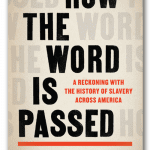
The following false statement occurs in Taylor Marshall’s book, Infiltration (chapter 31):
Pope Francis’s Amoris laetitia sparked considerable criticism for stating “No one can be condemned forever, because that is not the logic of the Gospel! Here I am not speaking only of the divorced and remarried, but of everyone, in whatever situation they find themselves.” The statement entails that hell is not eternal — a doctrine taught by Giordano Bruno, whose statue had been erected in Rome just a century before.
This is an absolutely outrageous misrepresentation, that can easily be exposed as such simply by consulting the entire context. I’ve already written at great length about this, in an article of mine from 2 April 2018, but I’ll paste the heart of the argument here, for convenience’ sake:
*****
There is just a slight problem with these charges. The words in question have nothing whatsoever to do with hell. Here is the full context, so that it’s clear to anyone with even a minimum of open-mindedness and fair-mindedness that the criticism is dead wrong and empty-headed (all italics and bolding and blue coloring are mine; footnote numbers are bracketed and in green):
296. The Synod addressed various situations of weakness or imperfection. Here I would like to reiterate something I sought to make clear to the whole Church, lest we take the wrong path: “There are two ways of thinking which recur throughout the Church’s history: casting off and reinstating. The Church’s way, from the time of the Council of Jerusalem, has always always been the way of Jesus, the way of mercy and reinstatement… The way of the Church is not to condemn anyone for ever; it is to pour out the balm of God’s mercy on all those who ask for it with a sincere heart… For true charity is always unmerited, unconditional and gratuitous”. [326] Consequently, there is a need “to avoid judgements which do not take into account the complexity of various situations” and “to be attentive, by necessity, to how people experience distress because of their condition”. [327]
297. It is a matter of reaching out to everyone, of needing to help each person find his or her proper way of participating in the ecclesial community and thus to experience being touched by an “unmerited, unconditional and gratuitous” mercy. No one can be condemned for ever, because that is not the logic of the Gospel! Here I am not speaking only of the divorced and remarried, but of everyone, in whatever situation they find themselves. Naturally, if someone flaunts an objective sin as if it were part of the Christian ideal, or wants to impose something other than what the Church teaches, he or she can in no way presume to teach or preach to others; this is a case of something which separates from the community (cf. Mt 18:17). Such a person needs to listen once more to the Gospel message and its call to conversion. Yet even for that person there can be some way of taking part in the life of community, whether in social service, prayer meetings or another way that his or her own initiative, together with the discernment of the parish priest, may suggest. As for the way of dealing with different “irregular” situations, the Synod Fathers reached a general consensus, which I support: “In considering a pastoral approach towards people who have contracted a civil marriage, who are divorced and remarried, or simply living together, the Church has the responsibility of helping them understand the divine pedagogy of grace in their lives and offering them assistance so they can reach the fullness of God’s plan for them”, [328] something which is always possible by the power of the Holy Spirit.”
[Footnotes:
326 Homily at Mass Celebrated with the New Cardinals (15
February 2015): AAS 107 (2015), 257.327 Relatio Finalis 2015, 51.
328 Relatio Synodi 2014, 25 ]
Clearly he’s talking about expressions of mercy and forgiveness within the Church, not questions of eternal destiny to either heaven or hell. The easiest way to establish this is to observe the corresponding reference, in almost immediate context, to Matthew 18:17, which reads (RSV): “If he refuses to listen to them, tell it to the church; and if he refuses to listen even to the church, let him be to you as a Gentile and a tax collector.”
Pope Francis is saying that if someone “flaunts an objective sin as if it were part of the Christian ideal, or wants to impose something other than what the Church teaches”, this “separates [them] from the community” (then he cites the above Bible passage).
He talked about “needing to help each person find his or her proper way of participating in the ecclesial community” and being shown mercy in order to do so. Then he says the line in question: “No one can be condemned for ever, because that is not the logic of the Gospel!” It’s clear as day what he means. But if someone insists on finding in his writing whatever thing they are looking for, then it can be “made” unclear (in that person’s mind, anyway).
The Holy Father is talking about forgiving 70 x 7. He’s talking about the same sort of Church-imposed sanctions and penances that St. Paul addressed in the following passage:
2 Corinthians 2:6-8, 10-11 For such a one this punishment by the majority is enough; [7] so you should rather turn to forgive and comfort him, or he may be overwhelmed by excessive sorrow. [8] So I beg you to reaffirm your love for him. . . . [10] Any one whom you forgive, I also forgive. What I have forgiven, if I have forgiven anything, has been for your sake in the presence of Christ, [11] to keep Satan from gaining the advantage over us; for we are not ignorant of his designs. (he appears to be referring back to his earlier passage where he counseled separating sinners from the congregation: 1 Corinthians 5:1-5)
Pope Francis firmly believes in hell. I’ve already written three articles proving that (one / two / three; see especially the first for the direct quotations from his addresses). That shouldn’t be at issue at all. This passage certainly does not prove that he denies hell. It has nothing to do with the topic in the first place.
Yet there are several more writers (I don’t know how many are reactionaries) who have made this same logically atrocious argument [one / two / three / four / five / six / seven/ eight / nine / ten / eleven]. Venues that have printed this insipid interpretation include (in the preceding links) First Things, Crisis Magazine, Lifesite News (reactionary), The American Catholic, The Remnant (reactionary), Catholic Family News (reactionary), and aka Catholic (extreme reactionary).
Steven O’Reilly at the Roma Locuta Est website offers penetrating in-depth commentary on this very question: whether hell is denied (or even addressed at all) in Amoris Laetitia. Nathan O’Halloran, writing for Commonweal (a theologically liberal magazine but correct here), also refutes these glaring errors.
Gerhard Cardinal Müller has also provided what I believe is the correct (and infinitely more plausible) interpretation of #297 (bolding in original removed):
Even when it is said “that no one can be condemned forever” this must be understood from the point of view of care, that never surrenders, for the eternal salvation of sinner rather than as a categorical denial of the possibility of an eternal condemnation which, however, presupposes voluntary obstinacy in sin. There are sins in the categories of the Church that exclude themselves from the Kingdom of God (1 Cor. 6,9-11) but only until the sinner opposes their forgiveness and rejects the grace of repentance and conversion. The Church, however, in her maternal concern, does not renounce any person who is a pilgrim on this earth and leaves the final judgment to God, the only who knows the thoughts of hearts. The Church’s task is preaching of conversion and faith and the sacramental mediation of grace that justifies, sanctifies and heals. For God says, “I do not enjoy the death of the wicked, but that the wicked desist from their conduct and live” (Ez. 33:11).
So many people didn’t care enough about this issue to take five minutes to read the context of the Pope’s statements, to seek what he actually meant, rather than immediate alleged “proof” of what they were already predisposed to think about him: itself mostly based on a judgment as to what is fashionable and popular.
It’s disgraceful and inexcusable to misrepresent and distort what anyone thinks: all the more so the Holy Father.
*****
Dr. Taylor Marshall, and all others who have spread this disinformation, should all be ashamed of themselves and repent.
Again, readers may wish to read my fuller treatment as well.
***
Photo credit: [PublicDomainPictures.Net / CC0 Public Domain]
***
















